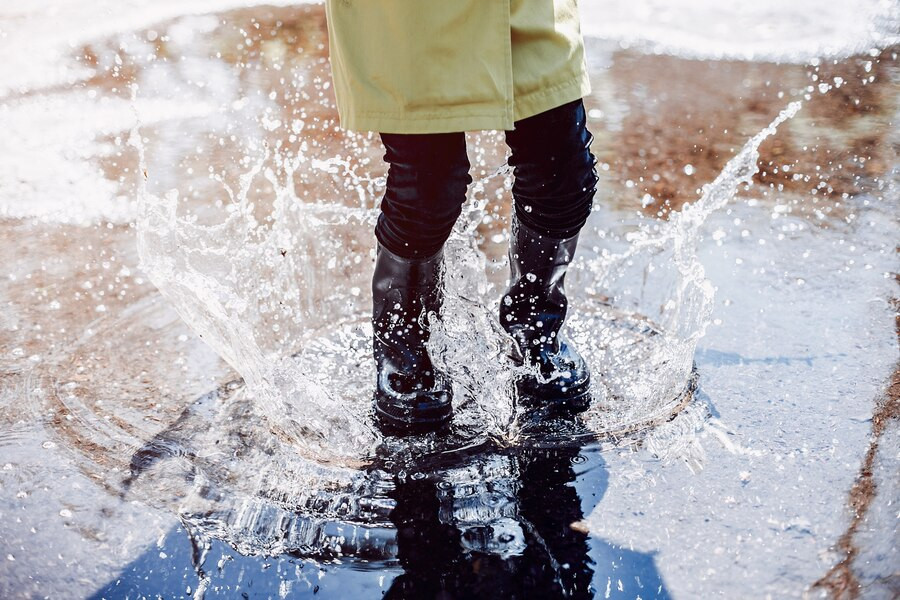Some areas of Indonesia are prone to flooding. When floods occur, one of the most common diseases is leptospirosis.
This disease is caused by the genus Leptospira bacteria, which spreads through water or soil contaminated with infected animals' urine. Floods can speed up the spread of leptospirosis by contaminating surface water and soil with infected animal feces.
How do Leptospirosis bacteria enter the body?
Leptospirosis bacteria can enter the body by coming into direct contact with contaminated water or soil. Scratches and open wounds on the skin increase the risk of infection.
Leptospirosis can lead to serious complications such as kidney and liver failure, bleeding syndrome, and severe breathing problems. These complications can be deadly if they are not treated promptly and appropriately.
Read more: How To Protect Yourself During a Flood
How to prevent leptospirosis infections
There are several steps that can be taken to prevent being infected with leptospirosis, especially during floods, including:
- Avoid playing in floodwater, especially if it appears dirty
- To reduce the risk of exposure to leptospira bacteria, wear protective gear such as rubber shoes and gloves when doing activities in waterlogged areas
- After coming into contact with floodwater or environments at risk of contamination, wash your hands and feet with soap and clean water to remove germs and bacteria that may have stuck to the skin
- To kill bacteria and other microorganisms, clean flood-affected surfaces with disinfectant after the floodwaters recede
- Avoid direct contact with animals that can carry leptospira bacteria, such as rats and other wild animals
- Keeping home areas clean and properly disposing of garbage will reduce the possibility of animals finding shelter around the house
- Make sure the water you drink is clean and safe, and avoid drinking from wells or contaminated water sources due to flooding
Read more: Health Risks of Coming Into Contact With Animal Carcasses
Keep an eye out for symptoms of Leptospirosis infection
After coming into contact with flood water or flooded land, you should be aware of the following symptoms.
Mild symptoms:
- Fever
- Cough
- Headache
- Muscle pain
- Rash without itching
- Diarrhea
- Vomiting
- Cold heat
- Red eyes
- Stomach pain
Severe symptoms:
- Skin changes and the whites of the eyes turn yellowish (jaundice)
- Kidney failure
- Liver failure
- Bleeding
- Breathing problems
- Heart arrhythmia
- Aseptic meningitis
- Myocarditis
If you develop any suspicious symptoms after being exposed to floodwater or moving into an environment with a high risk of contamination, see a doctor right away for a proper diagnosis and treatment.
If you need medical advice or consultation, you can either visit a doctor or make use of the consultation features that are available in the Ai Care application by downloading the Ai Care application from the App Store or Play Store.
Looking for more information about other diseases? Click here!
- Sean Edbert Lim, MBBS
CDC (2022). Leptospirosis. Available from: https://wwwnc.cdc.gov/travel/diseases/leptospirosis
WebMD (2021). Leptospirosis: Symptoms, Causes, and Treatment. Available from: https://www.webmd.com/a-to-z-guides/what-is-leptospirosis
Dr. Damien Jonas Wilson, MD (2022). How to Prevent Leptospirosis. Available from: https://www.news-medical.net/health/How-to-Prevent-Leptospirosis.aspx
Kirsten Nunez (2022). Overview of Leptospirosis in Humans. Available from: https://www.healthline.com/health/leptospirosis
NHS UK (2023). Leptospirosis (Weil's disease). Available from: https://www.nhs.uk/conditions/leptospirosis/
Tammy Worth (2023). Understanding Jaundice: What You Need to Know. Available from: https://www.webmd.com/hepatitis/jaundice-why-happens-adults











